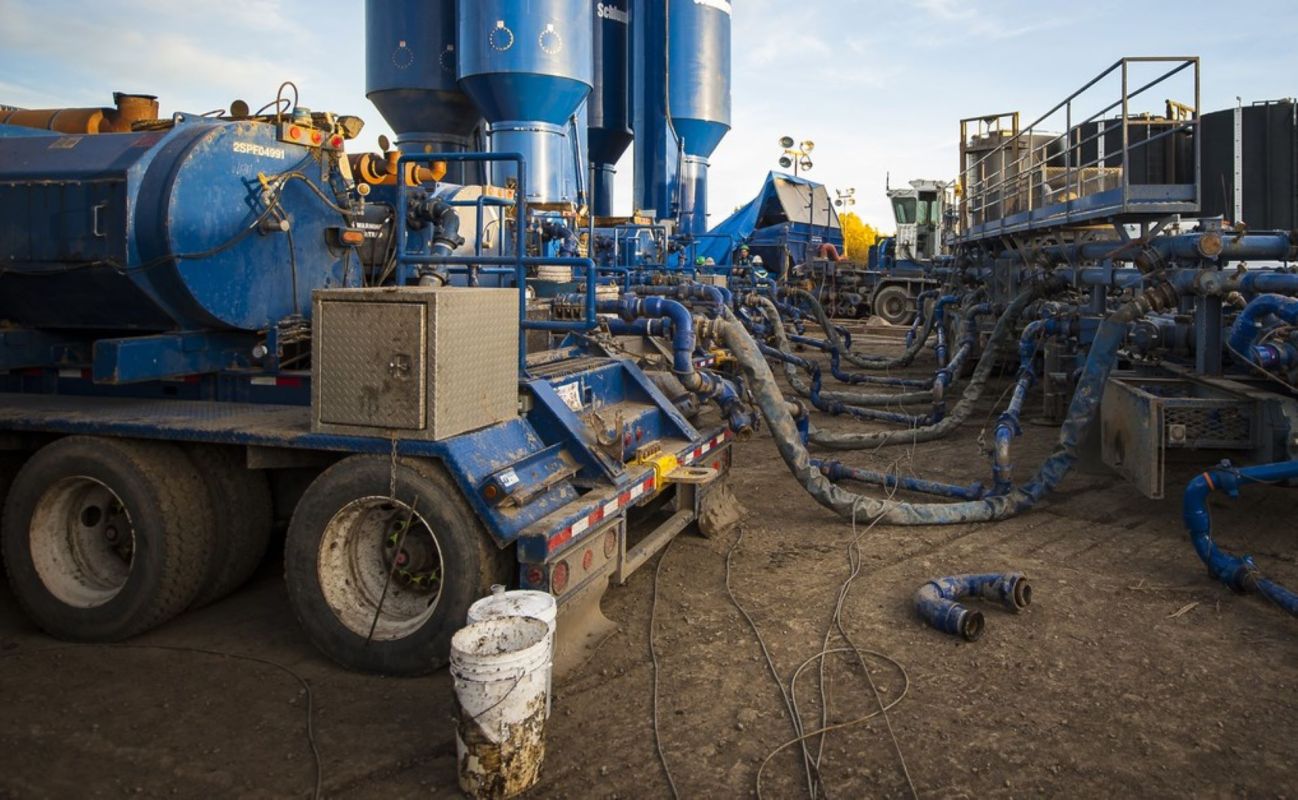New research revealed that oil and gas producers in Pennsylvania used "some 160 million pounds" of secret chemicals in more than 5,000 gas wells over the past decade, according to Inside Climate News. To make matters worse, the chemicals may have contained per- and polyfluoroalkyl substances (PFAS), which are described as "a toxic and pervasive class of chemicals."
What's happening?
Oil and gas producers are typically required to disclose the chemicals they use to state regulators in a database called FracFocus. However, Inside Climate News reported that state law allows producers to avoid disclosing them "if doing so would put their operations at a competitive disadvantage."
Physicians for Social Responsibility (PSR) is an activist group that recently co-published a compilation of studies on the dangers of hydraulic fracturing for oil and gas from 2012 to 2022. According to Inside Climate News, the report revealed that during the study period, at least one type of PFAS was used in eight Pennsylvania wells by two oil and gas producers.
"Eight wells may just be the tip of the iceberg because we also found that there were 160 million pounds of trade-secret chemicals injected into thousands of unconventional gas wells over the same period," Dusty Horwitt, who wrote the report for PSR, told Inside Climate News.
Why is this concerning?
PFAS are considered "forever chemicals" because they don't decompose in the environment and have the potential to accumulate in blood if ingested. Inside Climate News noted PFAS "are linked to serious illnesses including some cancers, low birth weights, ulcerative colitis, reduced receptiveness to vaccines and elevated cholesterol."
"Accumulation of certain PFAS has also been shown through blood tests to occur in humans and animals," according to the Food & Drug Administration. "While the science surrounding potential health effects of bioaccumulation is developing, exposure to some types of PFAS have been associated with serious health effects."
A study by the U.S. Geological Survey and Pennsylvania Department of Environmental Protection done in May of this year discovered that streams near small rural towns that are surrounded by oil and gas development may contain "low levels" of PFAS contamination.
The report from PSR stated that the possibility of PFAS contamination in Pennsylvania groundwater and other states where the fracking industry is active could pose a threat to public health.
"Should only a fraction of the unidentified chemicals used in Pennsylvania's unconventional gas wells be PFAS, they could pose a significant threat to human health," the report said.
What's being done about it?
According to Inside Climate News, multiple states, including Pennsylvania, have been increasingly imposing limits on the presence of PFAS in drinking water in the wake of mounting evidence of the chemicals' threats to public health.
Horwitt said the intention of the PSR report is to raise concerns that the oil and gas industry's use of PFAS may be more pervasive beyond the eight wells in Pennsylvania.
"With this current report, we want to empower residents and government officials in Pennsylvania to understand both the limited scope of what we know about PFAS use in the state's oil and gas wells and the potentially much larger scope of PFAS use that is hidden by the state's lax chemical disclosure rules," Horwitt said.
The report suggested that Pennsylvania can follow the example set by Colorado, where the use of PFAS by oil and gas producers is banned, and the public disclosure of all chemicals used in fracking is required.
Join our free newsletter for cool news and actionable info that makes it easy to help yourself while helping the planet.









